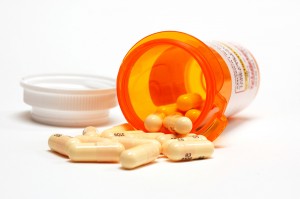 Adderall is a prescription medication with active ingredients dextroamphetamine and amphetamine, a central nervous system stimulant that primarily acts upon the brain. Though there are many intended uses for Adderall, the drug is usually prescribed to patient`s to help them control the symptoms of attention deficit and hyperactivity disorder (ADHD) or to manage the symptoms of narcolepsy.
Adderall is a prescription medication with active ingredients dextroamphetamine and amphetamine, a central nervous system stimulant that primarily acts upon the brain. Though there are many intended uses for Adderall, the drug is usually prescribed to patient`s to help them control the symptoms of attention deficit and hyperactivity disorder (ADHD) or to manage the symptoms of narcolepsy.
Like most stimulant drugs, Adderall can be dangerous if used by those who do not have a medical need for the drug and highly addictive if misused. Unfortunately, college students are the group most likely to abuse this medication. Because teens and young adults are most likely to have a prescription for the pills due to the high rate of ADHD in this population, there is a great deal of abuse in high schools and colleges. Abusers of the drug are often:
- Young adults with a prescription whose body chemistry has changed over time in such a way that the drug is no longer effective for its original purpose
- Friends of teens who have a prescription and are given the drug to “help them study”
- Teens who purchase the drug from teens who have a prescription
- Teens who learn the symptoms of ADHD and falsely present with those symptoms to a doctor who can prescribe the medication to them
If your teen or anyone you know is abusing Adderall, take action immediately. Abuse of the drug can be dangerous to anyone’s mental and physical health, and an addiction can change the course of one’s life forever. Call now to learn more about our unique drug abuse treatment program here at Axis.
Why Are Teens Abusing Adderall?
Other reasons for using Adderall include:
- Losing or managing weight
- Experiencing a high
- Staying up longer to drink or use other drugs
- Focusing on a hobby or side project
The “typical” Adderall abuser is not the “typical” teen drinker or marijuana smoker. In fact, teens who abuse Adderall are often strong students, driven, heavily involved at school and focused on the future. They have a number of projects, deadlines, exams, and application due dates pending at any given time and may have a commitment to a school sports team or community group as well.
These kids are likely to use Adderall because it has the effect of helping them to focus for long periods of time. With little need for food or sleep, they can accomplish a great amount of work in a short amount of time, allowing them to keep up with everything at once. Though some abuse the drug recreationally, many teens are abusing the drug for the sole purpose of improving their ability to focus in school.
Responsible Adderall Use
Parents of teens who are prescribed Adderall are advised to take a heavy hand in monitoring the prescription, making sure they take the drug as prescribed and do not abuse it in anyway.
Some common methods of Adderall pill abuse include:
- Taking larger doses than prescribed
- Taking doses more often than prescribed
- Crushing the pills before snorting them
- Combining use of Adderall with other drugs
- “Saving doses” to take one large dose for a greater effect
- Taking Adderall without a prescription for any reason

Abusing Adderall not only risks acute issues while under the influence of the drug but exposes the user to the development of addiction. Long-term use of the drug can cause a number of serious physical and mental health issues, ultimately ruining any progress that the user hoped to gain.
How Many Are Abusing Adderall?
 Is Adderall an isolated issue among a certain group of teens, or is it a widespread problem? Statistically speaking, use of the medication for non-medical purposes is significant among teenagers in the United States.
Is Adderall an isolated issue among a certain group of teens, or is it a widespread problem? Statistically speaking, use of the medication for non-medical purposes is significant among teenagers in the United States.
The University of Maryland’s Center on Young Adult Health and Development reports that, as of 2011, about 1 in 10 high school-aged US teens reported non-medical use of Adderall or Ritalin, a similar drug, while 4.1 to 10.8 percent of college students reported non-medical use of these medications. Additionally, the Substance Abuse and Mental Health Services Administration’s National Survey on Drug Use and Health found that about 6.4 percent of fulltime college students between the ages of 18 and 22 reported non-medical use of Adderall between 2006 and 2007.
The study also reported that those who used Adderall non-medically were more likely to report binge drinking (89.5 percent of Adderall abusers reported binge drinking) or heavy drinking, and that these users were almost three times as likely to have used marijuana, eight times as likely to have abused prescription tranquilizers, and five times as likely to have abused prescription painkillers.
The dangers associated with Adderall abuse can be compounded by the co-occurring abuse of alcohol or other drugs, so teens who are abusing Adderall along with other substances are putting themselves at an even greater risk of experiencing the harmful effects of Adderall – everything from accident and overdose to a full-blown addiction.
The Effects of Adderall Abuse
Unfortunately, the same myth that pervades the public about prescription drug use persists about Adderall use as well; many teens believe that because the drug is originally prescribed by a doctor for legitimate medical purposes, created and manufactured under heavy scrutiny, and handed out by a pharmacist that it is inherently safe.
The fact is that the exact opposite is true. It may be safe for use in certain patients who have been evaluated by a doctor who specializes in behavioral medicine – and even then, it can cause side effects and complications that require medical attention and potentially the cessation of use or an alteration of dosage. Unmonitored use of the drug is never recommended due in part to the many side effects that can occur even at low doses, including:
- Irregular heartbeat
- Dangerous high body temperature
- Increased risk for heart failure
- Hostility or aggression
- Paranoia
- The development or worsening of psychiatric problems
- Anxiety
- Changes or disturbances in sleeping patterns
- Tremors
- Headaches
- Sexual changes
- Dry mouth
- Stomach pains
- Nausea with or without vomiting
- Reduced appetite and weight loss
- Seizures
- Delusions
- Hallucinations
- Overdose
- Addiction
Who’s at Risk for Adderall Abuse?
While any adolescent can fall victim to Adderall abuse and dependence, studies have shown that certain factors increase a teen’s risk for abusing Adderall.
Some of the factors commonly associated with Adderall addiction and abuse include:
- A past history of drug abuse or addiction
- Excessive drinking
- Involvement in a fraternity or sorority
- Poor academic performance
- Pre-existing psychological problems or disorders
- A belief that Adderall is not harmful or has a low risk of being harmful
Though the list above provides insight into some characteristics shared by many who have a problem with Adderall, it is by no means comprehensive nor does the existence of these issues in your child’s life guarantee that they will abuse the drug. Some teens who exhibit all the above signs will never try Adderall and some who don’t present with any of those problems may end up developing a dependence upon the drug.
The key to identifying Adderall abuse in your loved one is to know the risks, know the signs, and be ready to act at the first sign that there is an issue of any kind with use or abuse of these pills.
Jeff’s Story
 Jeff was the quarterback of his high school football team. He had excellent grades taking college prep classes and scored well on standardized tests. In high school, he took Adderall a few times – before a big project was due and once regularly for a week during his senior year when he had multiple application deadlines to hit while still keeping up with grades and practice – but he never used the drug regularly.
Jeff was the quarterback of his high school football team. He had excellent grades taking college prep classes and scored well on standardized tests. In high school, he took Adderall a few times – before a big project was due and once regularly for a week during his senior year when he had multiple application deadlines to hit while still keeping up with grades and practice – but he never used the drug regularly.
This introduction was enough for him to feel that the drug was a viable option when he went to college and began working toward a pre-med degree with hopes of getting into medical school. In order to secure a steady supply of the drug, he determined what symptoms he would need to present to a psychiatrist in order to get the prescription. He made sure to relate hugely positive results when he got the script – and his doctor responded by increasing the dosage.
Soon, his parents saw changes in him. He lost an unhealthy amount of weight, became erratic in both mood and behavior, lost his ability to manage his academics, and ultimately was kicked out of school.
Said his mother: “He came back home but he wasn’t the same person who left the year before. He was violent – it was scary. We were locking our bedroom door at night.”
Though his parents tried to intervene and tell the doctor the symptoms he was experiencing, she continued to give him the medication. Because he was now over the age of 18, there was little his parents could do.
Over a period of a few months, his mental health deteriorated rapidly. It wasn’t until he attempted to take his own life that his parents were able to successfully intervene by proving to authorities that he needed serious medical attention.
Not a Phase
If an adolescent is abusing Adderall or any illicit substance including alcohol, he needs help. It doesn’t matter if your teen has abused Adderall once or claims to have it “under control.” Any drug abuse is a sign that something is wrong and that your child needs help learning how to better handle stressors and other issues. Teen drug abuse is not normal and it’s not just a passing phase. If your child is abusing any drugs or alcohol, seek help for him today.
The Signs of Adderall Abuse
Overdose Risk
The most serious risks associated with Adderall abuse are addiction and overdose. Overdose typically occurs suddenly and can happen regardless of how many times the person has abused the drug in the past. Overdoses should be taken seriously, and medical help should be sought immediately. Symptoms that could indicate an Adderall overdose include:
- Feeling panicked or restless
- Mental confusion
- Hallucinating
- Changes in breathing
- Uncontrollable shaking
- Dizziness
- Changes in heartbeat
Even the most watchful parents, relatives, and health care professionals will not always spot teen Adderall abuse if they are not aware of what it looks like. While Adderall abuse symptoms can vary from user to user and are dependent on the severity and frequency of the abuse, some of the most common signs of the problem include:
- “Doctor shopping” and/or falsifying symptoms in order to obtain a prescription or more prescriptions for Adderall
- Legal problems
- Academic struggles
- Behavioral issues
- Increased tolerance to Adderall (i.e., needing more and more of the drug to experience the desired results)
- Intentional misuse of the drug (e.g., smoking, snorting, or injecting the drug instead of taking it orally)
- Taking Adderall to “feel normal” or to cope with stress
- Spending a great deal of time acquiring, using, and thinking about the drug
- Continuing to abuse Adderall in spite of the negative consequences experienced
- Extreme changes in behavior, mood or attitude
Treatment Options
You have a range of choices when it comes to types and styles of treatment, but the best bet at eradicating the problem at the start is to take strong and progressive action, enrolling your loved one in the most comprehensive treatment option possible. Here at Axis, we offer a dynamic rehabilitation program that addresses issues of substance abuse, addiction and co-occurring mental health issues. Call now to learn more about our unique program.



